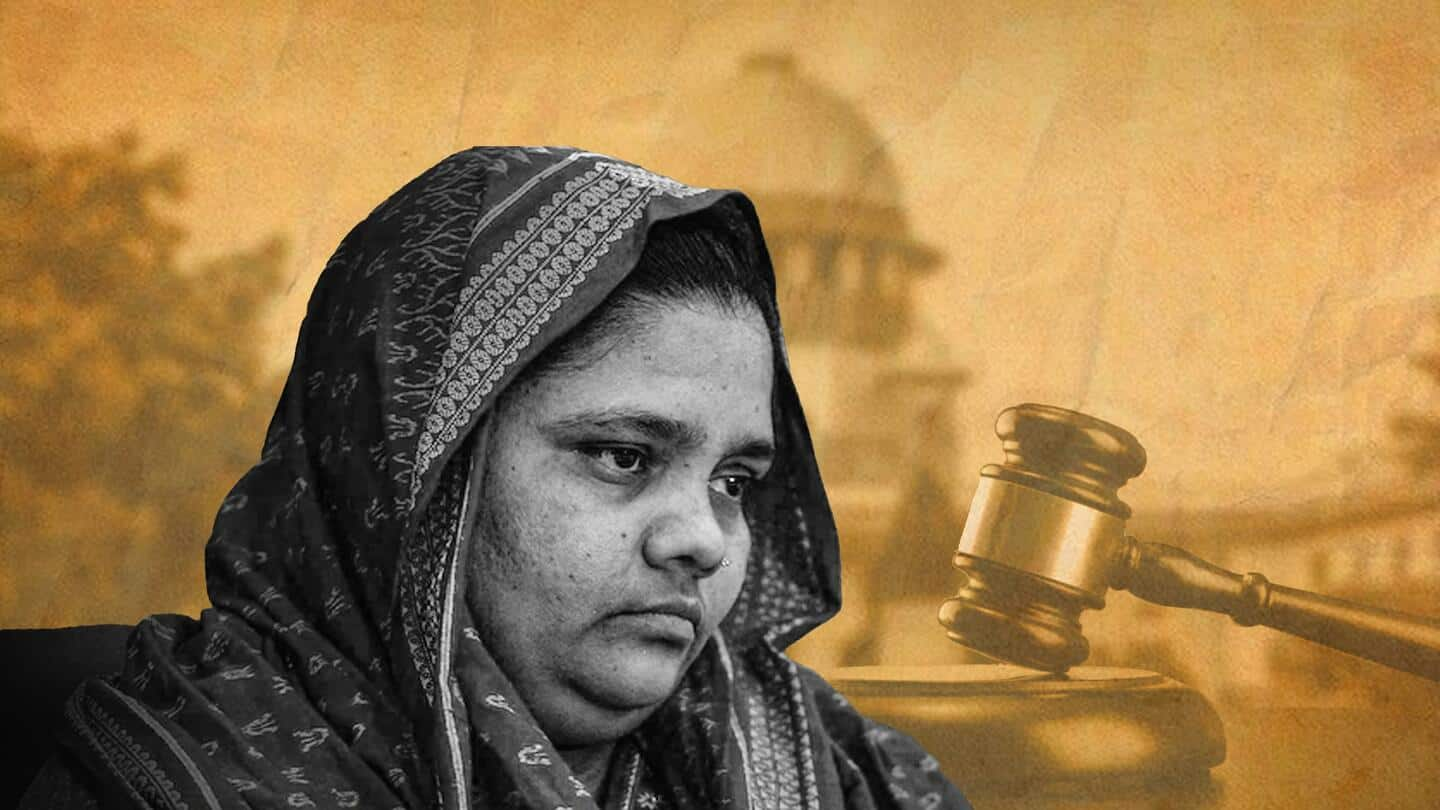
Supreme Court dismisses Bilkis Bano's review plea against convicts' release
What's the story
Supreme Court on Saturday dismissed Bilkis Bano's one of the petitions seeking review of the Supreme Court judgment that allowed the early release of 11 men, convicted for her gang rape and murder of her seven family members.
The convicts were sentenced to life imprisonment. However, they walked free on August 15 after the Gujarat government ordered their release under its 1992 remission policy.
Context
Why does this story matter?
Bano was five months pregnant when the Gujarat riots erupted in 2002 after a Sabarmati Express coach was set on fire in Godhra.
On March 3, 2002, 21-year-old Bano and her family were attacked in Ahmedabad's Randhikpur village by an angry mob that raped her and killed her family members.
More than 1,000 people reportedly lost their lives in the Gujarat riots.
Details
Petition seeking a review of SC's May judgment rejected
"I am directed to inform you that the review petition above mentioned filed in Supreme Court was dismissed by the court on December 13, 2022," the assistant registrar of the SC stated, in a letter to Bano's attorney Shobha Gupta.
However, the order won't immediately affect the second petition, which challenges the grounds for release.
Twitter Post
Read the Supreme Court official letter
Breaking 🚨
— Shashank Shekhar Jha (@shashank_ssj) December 17, 2022
Supreme Court has dismissed the Review Petition of #BilkisBano which challenged the Gujarat's 1992 policy for remission of convicts. pic.twitter.com/8w3DeHJnGm
Proceedings
What happened in Supreme Court in May?
A panel of judges comprised of Justice Ajay Rastogi and Justice Vikram Nath ruled in May 2022 that the Gujarat government has jurisdiction to evaluate the remission plea because the violation occurred in Gujarat.
The court had further instructed the Gujarat government to determine the case within two months in accordance with the 1992 remission policy.
Facts
Bano's plea against early release of convicts
In November, Bano filed a review petition to challenge the SC's ruling in May that allowed the Gujarat government's remission decision.
Additionally, she petitioned the SC challenging the government's decision to release the convicts in August.
Notably, a special Central Bureau of Investigation (CBI) court sentenced convicts to life imprisonment on January 21, 2008, while the rest were acquitted due to lack of evidence.
Release
Shocking release of convicts on Independence Day
On August 15, the Gujarat government released the convicts in the case under the amnesty policy of 1992 triggering outrage.
It said that the convicts' applications for remission were considered on completion of 14 years in prison and factors such as age, behavior in prison, and the nature of the offense.
Life imprisonment means a minimum sentence of 14 years.